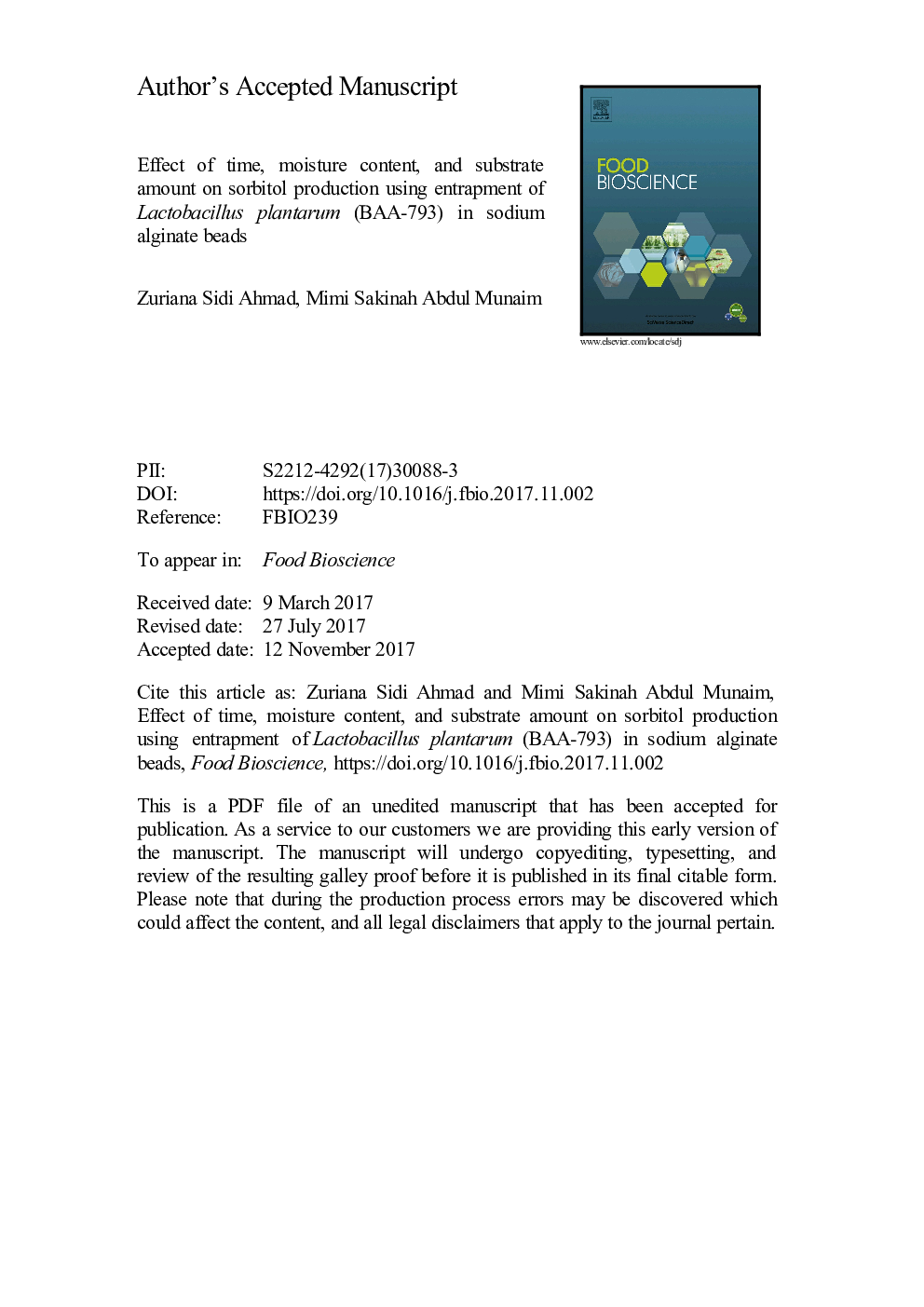| Article ID | Journal | Published Year | Pages | File Type |
|---|---|---|---|---|
| 6488945 | Food Bioscience | 2018 | 26 Pages |
Abstract
Agro-industrial wastes such as Meranti wood sawdust (MWS) have great potential as substrates for the production of sorbitol and other biochemical products. In this study, treated cellulose from MWS was used as a substrate to produce sorbitol via solid state fermentation (SSF) process using immobilized cells of Lactobacillus plantarum strain (BAA-793), entrapped in sodium alginate. The effect of fermentation time, moisture content, and substrate amount on sorbitol concentration were studied at the following ranges (fermentation time: 2-8Â h, moisture content: 40-80%, and substrate amount: 0.5-2.5Â g). The results show that the fermentation time of 4Â h, substrate amount of 2Â g and moisture content of 50% yielded 8.396Â g/L of sorbitol. With a moisture content of 50%, substrate amount of 2Â g, and fermentation time of 6Â h yielded 4.726Â g/L of sorbitol. The highest concentration of sorbitol (13.607Â g/L) was obtained at the optimized condition of fermentation time 4Â h, moisture content 50%, and substrate amount 1.0Â g. These results indicate that the fermentation time, moisture content, and substrate amount are important factors to be considered in order to achieve high sorbitol yield.
Related Topics
Physical Sciences and Engineering
Chemical Engineering
Bioengineering
Authors
Zuriana Sidi Ahmad, Mimi Sakinah Abdul Munaim,
